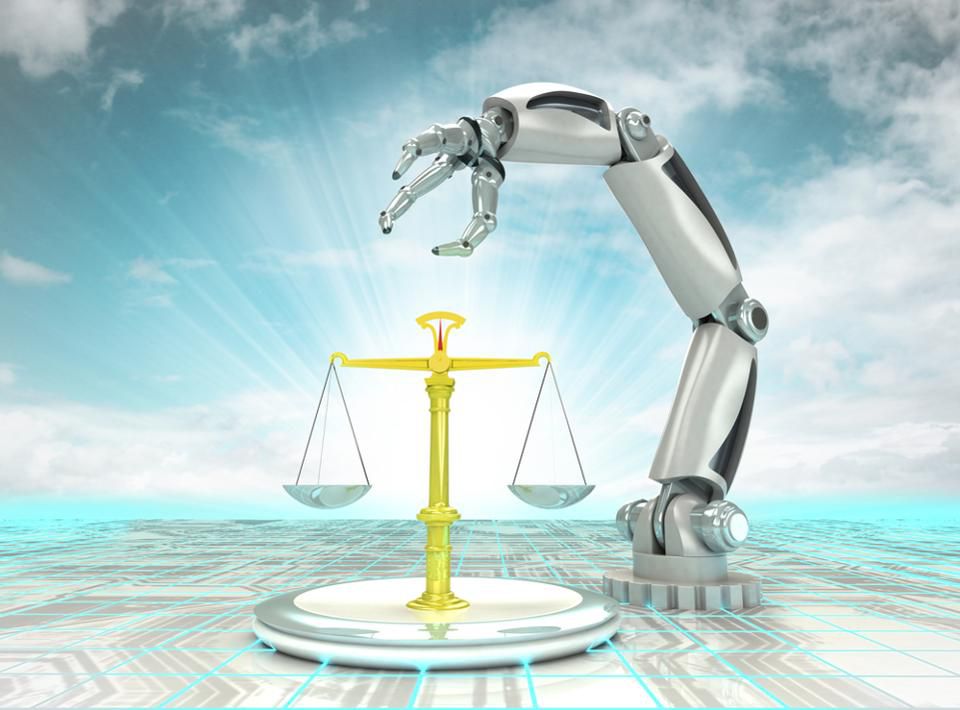The term “artificial intelligence” conjures different meanings depending upon one’s perspective. If you are Elon Musk of Tesla fame, you view artificial intelligence in apocalyptical terms, as something that could lead to “a fleet of artificial intelligence-enhanced robots capable of destroying mankind.”
copyright by www.dailyherald.com
 While we hope it will not be lethal, the increasing use of artificial intelligence in the legal services industry poses its own challenges.
While we hope it will not be lethal, the increasing use of artificial intelligence in the legal services industry poses its own challenges.
Law firms accustomed to using lawyers to perform certain tasks are now encountering technology, including artificial intelligence, that can perform tasks in seconds or minutes rather than the hours spent by a human counterpart. Although there are a growing number of firms using alternative fee arrangements, the majority of law firms continue to rely upon the billable hour as the source of their revenues. As technology and artificial intelligence continue to improve and threaten the traditional revenue model, law firms must assess how to use these technologies and consider other means of billing.
What exactly is artificial intelligence? Webster’s Dictionary defines it as: 1) a branch of computer science dealing with the simulation of intelligent behavior in computers; and 2) the capability of a machine to imitate intelligent human behavior. In the context of delivering legal services, artificial intelligence includes the following applications:
Legal research: Use of computer programs to perform automated legal research, including the ability to provide relevant case law based upon a brief submitted by the client.
Document automation: Assembly of contracts, legal briefs, employee handbooks and related documents after the attorney inputs responses to a series of questions.
E-discovery: Identification of privileged, sensitive and relevant documents in connection with litigation discovery by keyword search, as well as filtering and sampling (predictive coding) of potentially responsive documents.
Contract analysis: Extraction and summaries of key provisions from contracts, known as abstracts. Technology firms have developed programs that can extract the relevant terms from a lease and prepare a summary report. Lawyers then can use abstracts to identify key contract provisions and compare them to industry bench marks.
Thank you for reading this post, don't forget to subscribe to our AI NAVIGATOR!
Acquisition due diligence: Review of key agreements provided in the due diligence process to identify significant contract provisions that can influence key deal points in an acquisition, including indemnification and the nature of representations and warranties.
Legal analytics: Aggregation of litigation data, including an analysis of historical trends to determine, for example, how likely a judge may grant or deny a specific motion, how long cases take before a judge may grant a permanent injunction, or whether a judge will find infringement of a patent.
Many companies offer these services and others. Firms leaders frequently are lawyers who practiced at large law firms and observed inefficiencies in the traditional law firm delivery model, adopting the Jeff Bezos ethos that “your margin is my opportunity.” […]
read more – copyright by www.dailyherald.com


The term “artificial intelligence” conjures different meanings depending upon one’s perspective. If you are Elon Musk of Tesla fame, you view artificial intelligence in apocalyptical terms, as something that could lead to “a fleet of artificial intelligence-enhanced robots capable of destroying mankind.”
copyright by www.dailyherald.com
Law firms accustomed to using lawyers to perform certain tasks are now encountering technology, including artificial intelligence, that can perform tasks in seconds or minutes rather than the hours spent by a human counterpart. Although there are a growing number of firms using alternative fee arrangements, the majority of law firms continue to rely upon the billable hour as the source of their revenues. As technology and artificial intelligence continue to improve and threaten the traditional revenue model, law firms must assess how to use these technologies and consider other means of billing.
What exactly is artificial intelligence? Webster’s Dictionary defines it as: 1) a branch of computer science dealing with the simulation of intelligent behavior in computers; and 2) the capability of a machine to imitate intelligent human behavior. In the context of delivering legal services, artificial intelligence includes the following applications:
Legal research: Use of computer programs to perform automated legal research, including the ability to provide relevant case law based upon a brief submitted by the client.
Document automation: Assembly of contracts, legal briefs, employee handbooks and related documents after the attorney inputs responses to a series of questions.
E-discovery: Identification of privileged, sensitive and relevant documents in connection with litigation discovery by keyword search, as well as filtering and sampling (predictive coding) of potentially responsive documents.
Contract analysis: Extraction and summaries of key provisions from contracts, known as abstracts. Technology firms have developed programs that can extract the relevant terms from a lease and prepare a summary report. Lawyers then can use abstracts to identify key contract provisions and compare them to industry bench marks.
Thank you for reading this post, don't forget to subscribe to our AI NAVIGATOR!
Acquisition due diligence: Review of key agreements provided in the due diligence process to identify significant contract provisions that can influence key deal points in an acquisition, including indemnification and the nature of representations and warranties.
Legal analytics: Aggregation of litigation data, including an analysis of historical trends to determine, for example, how likely a judge may grant or deny a specific motion, how long cases take before a judge may grant a permanent injunction, or whether a judge will find infringement of a patent.
Many companies offer these services and others. Firms leaders frequently are lawyers who practiced at large law firms and observed inefficiencies in the traditional law firm delivery model, adopting the Jeff Bezos ethos that “your margin is my opportunity.” […]
read more – copyright by www.dailyherald.com
Share this: